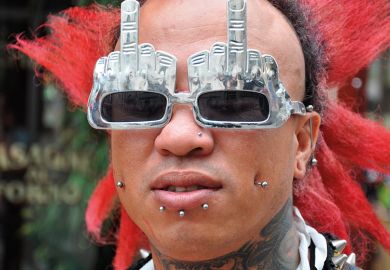Nearly two dozen South Korean universities – including some of the country’s most prominent institutions – will start to take applicants’ high school records of violence into account in their admissions practices for the 2025 academic year.
The issue has come under scrutiny recently, with the Korean Netflix drama The Glory, which draws on true events to tell the story of a woman who plots revenge on those who bullied her in high school, attracting large numbers of Korean and international viewers.
In April, the government in Seoul announced that it would strengthen policies against perpetrators, requiring all universities to have in place anti-bullying admissions policies by 2026. But a number of universities have decided to introduce such measures early, starting next year.
The 21 institutions implementing the policy in 2025 include Seoul National University, Korea University – both members of the prestigious “SKY” trio of universities – as well as Hanyang University, Konkuk University, Kookmin University and the University of Seoul, according to media reports. Universities will decide individually how much weight bullying will carry in admissions decisions.
Currently, institutions consider applicants’ bullying records only in a number of specific cases, and infractions do not hold as much weight as academic transcripts, after-school activities or teachers’ letters of recommendation, according to media reports. If bullying records become widely used in admissions, it could mean some high-schoolers are denied entry to their first-choice universities.
Terri Kim, a visiting professor at Yonsei University and honorary professor of comparative higher education at the University of East London, said the measures were intended to tackle an “endemic” problem in South Korea – one that is tied to its hypercompetitive university admissions.
“School bullying in Korea, I think, reflects the ‘social Darwinist worldview’ prevalent and accepted in Korean society, where success is often seen as a zero-sum game…students believe that they must compete ruthlessly with their peers to survive and succeed,” she said.
Dr Kim noted that anti-bullying policies could “promote accountability for individuals who engage in bullying behaviour and send a message that such behaviour would not be tolerated” and could “potentially help to create a safer and more inclusive school environment”.
Nevertheless, she expressed concerns about the fairness of such measures. “There may be difficulties in determining the veracity of bullying allegations and assessing the extent to which someone was involved in such behaviour.”
Dr Kim worried that university-level solutions were too late and too limited to tackle a problem that often begins early in childhood.
“I think this policy is instrumental in ad hoc remedial action rather than addressing the root cause of bullying,” she said, adding that it is “far more urgent” to come up with interventions sooner.
Jun Yoo, a professor in Yonsei’s department of Korean language and literature, was even less convinced about the usefulness of anti-bullying admissions policies.
“The universities should not be wasting their time and resources on bullying,” he said. “If the Ministry of Education had a zero-tolerance policy and [were to] offer strong legal counsel and support the victims versus having vague laws where the perpetrator [or] their families can drag the cases for years or exploit loopholes, these issues would have been addressed much earlier.”
Register to continue
Why register?
- Registration is free and only takes a moment
- Once registered, you can read 3 articles a month
- Sign up for our newsletter
Subscribe
Or subscribe for unlimited access to:
- Unlimited access to news, views, insights & reviews
- Digital editions
- Digital access to THE’s university and college rankings analysis
Already registered or a current subscriber?







